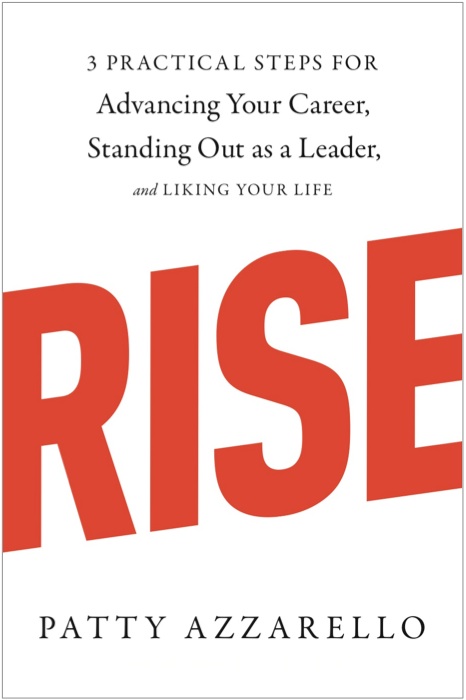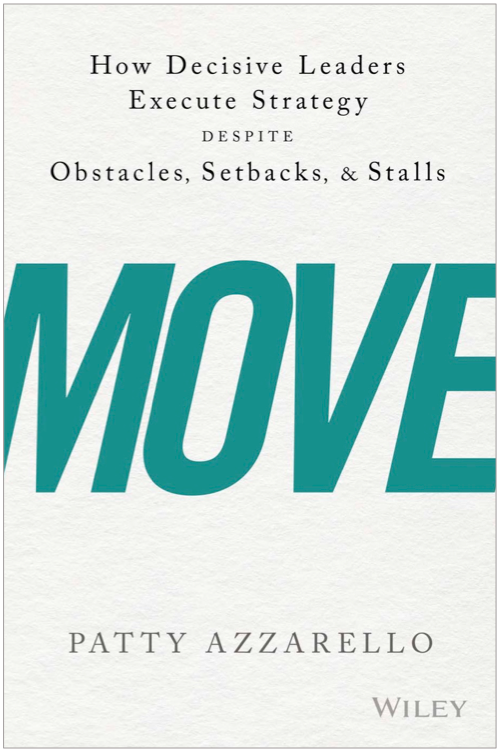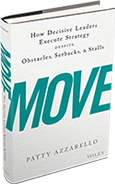
Can you be too hands off?
Someone recently asked me a question about delegating…
We spend a lot of time thinking and talking about how to delegate without micromanaging. But what about the other side? What about being too hands off? Can that be a problem too?
When it comes to delegating you want to avoid the two ends of the spectrum: Micromanaging, and Abdicating.
What do I mean by abdicating?
Managers (including me) are sometimes tempted to abdicate (run away, far, and happily!) when either they know nothing about the work they are delegating, or the work is so boring and distasteful that they wish they didn’t have to deal with it at all!
If you’ve got someone on your team who actually understands and wants to do this unpleasant work, it’s so very tempting to say,
“Thank god! YOU take it, I trust you… Please don’t even talk to me about it!”
That’s abdicating!
The right balance
But when the work is unfamiliar or distasteful, here is where you have to find the right point between micromanaging and abdicating. There is no danger in micromanaging because you don’t have the knowledge and skills to engage…
The real danger is in abdicating. So if you don’t abdicate, and you don’t jump in and micromanage and try to add value to the work itself, how do you add value as a leader?
Keep ownership of the outcome
They way that I have learned to deal with this situation is to focus on outcomes.
When you are not an expert in the work, you can still be a strong leader by keeping ownership of outcomes.
Sit down with the manager and have a discussion about concrete, desired outcomes.
Here are some useful outcome-oriented questions:
1. Over the next year, what do you think are the most important outcomes your team needs to deliver each quarter?
2. Can you walk me through the rationale for you why selected those outcomes? Are these internally or externally driven?
3. Who other than our team cares about these outcomes? Have they agreed?
4. Are there any other outcomes that you think we might have missed?
5. How do you propose that I should measure you and your team on those outcomes?
6. What do you see as the risks you will face in delivering these outcomes? Can I help?
I have found that my direct reports (who were expert in the work that I knew nothing about) could bring to the table excellent ideas and specific measures, and we could have a really concrete discussion about necessary outcomes and how to measure them.
Solid Leadership
Through this conversation you show that you care about the work, that you are interested in maximizing outcomes, and that are ready to help mitigate risks.
And you will end up with a solid performance and tracking plan. This is so much better than abdicating!
Use your network
Another useful technique I have discovered to manage work that I don’t understand very well is to find people who have a lot more experience than me in managing this same function, and to ask them:
• What is your definition of high performance in this area?
• What is your definition of a failure?
• What are the biggest risks you need to manage?
• What opportunities do you think the best organizations of this type need to be focused on now and moving forward?
• What do you think the biggest problems on the horizon are for this type or organization?
• How do you measure your people?
• What signs should I be looking for to know if things are going in the right or wrong direction?
By using these techniques, you can maintain ownership of the outcome, and support your team to be the experts and do great work. These techniques are part of the tool box of making people feel like super-heroes, the best goal for any leader.
Patty Azzarello
Patty is available to speak at your company, annual meeting, or customer event. She can also deliver a custom workshop on Leadership or Strategy Execution for your leadership team. Contact Patty.
Or if you would like some personal help on your own professioal development, check out her Executive Mentoring Group. It’s filled with insights, resources and support to build your executive confidence, advance your career, and includes direct mentoring from Patty.
What do you think?
Join the conversation about this on my facebook page.
Was this useful?
If you found this article useful, please help me share it with others and encourage them to subscribe to this Blog for free.
Patty Azzarello is an executive, best-selling author, speaker and CEO/Business Advisor. She became the youngest general manager at HP at the age of 33, ran a billion dollar software business at 35 and became a CEO for the first time at 38 (all without turning into a self-centered, miserable jerk)



